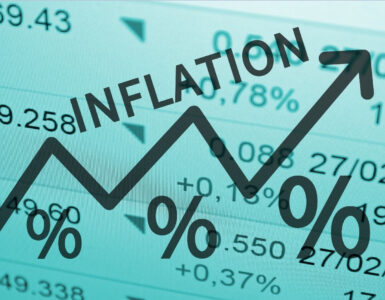Stock futures mixed; Credit Suisse shares plunge; Tesla boasts a record quarter; OPEC+ promises to tighten the taps; Jobs Friday in focus for the week.
Here are five things you must know for Monday, October 3:
1. — Stock Futures Mixed as Investors Kick Off the Final Quarter of 2022
U.S. equity futures were mixed on Monday after closing out a dismal September as investors looked past the worst month for the S&P 500 since 2008 and seek to gauge whether the Federal Reserve’s aggressive rate-tightening efforts to combat inflation will continue.
Friday capped off a negative month and quarter for all the major averages, with the Dow falling 500.10 points, or 1.71%, to close below 29,000 for the first time since November 2020. For the month, the Dow dropped 8.8%, while the S&P 500 and Nasdaq Composite lost 9.3% and 10.5%, respectively.
Inflation prospects, as well as planned central bank rate hikes, remain the market’s central concern, with September’s U.S. jobs data being a key focal point for the coming week. Meantime, the VIX index, Wall Street’s so-called ‘fear gauge,’ remains elevated, trading up another 3.17% on Monday at 32.85.
The index has risen more than 32% in the past month amid surging bond yields amid prospects that the economy is likely to slip into recession due to the Fed’s aggressive actions to make borrowing more expensive for consumers and businesses in an effort to tamp down inflation.
Benchmark 2-year notes were pegged at 4.208% in overnight dealing, pulled lower by a softer U.S. dollar. Bond yields move inversely to prices. Benchmark 10-year U.S. Treasury bond yields were at 3.797%. The note had a particularly volatile week last week, soaring to a near 14-year high before seeing its steepest inter-day decline since 2020 during last Wednesday’s session.
European stocks meantime, kicked off the month of October on a down note, dragged down by gloomy sentiment in Asia-Pacific and a 9% drop in Credit Suisse.
Shares of Credit Suisse plunged nearly 10% during morning trading in Europe after the Financial Times reported that the Swiss bank’s executives are seeking to reassure major investors about its financial health.
Somewhat offsetting the negative sentiment and also helping the beleaguered pound was a pivot by the U.K. government, which on Monday said it won’t proceed with the removal of a 45% top rate of income tax.
The new government under Prime Minister Liz Truss had pledged to cut the top rate of tax paid on incomes over £150,000 ($166,770) to 40%, though the move sparked a severe market response that pushed the pound to record lows and forced the Bank of England to intervene. The pound was up 0.3% against the U.S. dollar on Monday.
On Wall Street, meantime, futures contracts tied to the S&P 500 are indicating a 2.5 point opening bell drop, while linked to the Dow Jones Industrial Average are priced for a 53 point gain. Futures tied to the tech-focused Nasdaq are indicating a 54.75 point move to the downside.
2. — Credit Suisse Shares Plunge on Fears of Another ‘Lehman Moment’
Shares of Credit Suisse plunged nearly 10% in Europe’s morning session, after the Financial Times reported the Swiss bank’s executives are in talks with its major investors to reassure them amid rising concerns over the Swiss lender’s financial health — raising concerns of another “Lehman Moment.”
The Financial Times reported on Sunday that teams at the bank were actively engaging with its top clients and counterparties over the weekend to assure them the bank was solvent, adding that they were receiving “messages of support” from top investors.
Spreads of the bank’s credit default swaps (CDS), which provide investors with protection against financial risks such as default, rose sharply Friday. They followed reports the Swiss lender is looking to raise capital, citing a memo from its CEO Ulrich Koerner.
Investors already on edge about rising borrowing costs, tightening liquidity conditions and rising market volatility are concerned that a large institution could find itself in financial trouble similar to what happened to Lehman Brothers in 2008.
However, analysts at Citigroup noted in a research note that they “…struggle to see something systemic” related to a “large European bank.” The analysts did not specifically name Credit Suisse.
3. — Tesla Falls After Record Third-Quarter Deliveries Miss Forecasts
Tesla (TSLA) – Get Tesla Inc. Report shares fell 5% in premarket trading on Monday after the electric car maker reported record vehicle deliveries in the most recent quarter that still fell short of analysts’ forecasts, leaving the company in need of a further production boost to meet its annual growth targets.
Deliveries were up roughly 42% from last year’s third quarter, when Tesla handed over 241,000 vehicles, according to the company. Analysts surveyed by FactSet forecast that Tesla would deliver around 371,000 vehicles in the third quarter.
TheStreet Recommends: Elon Musk Sends Scathing Message to Tesla Investors
Tesla has a long-term goal to increase output by an average of 50% annually and, in July, said that was still attainable despite production disruptions. To reach that level, Tesla would need to roughly deliver a record-setting 495,000 vehicles in the fourth quarter; at present, analysts are expecting the company to deliver 457,000 vehicles in the final three months of this year.
Tesla also said in its report the company produced 19,935 of its higher priced Model S and X vehicles, and 345,988 of its more popular Model 3 and Y vehicles during Q3. During the year-ago quarter, Tesla reported deliveries of 254,695 vehicles, and that it had produced 237,823 cars including just 8,941 Model S and X vehicles.
Tesla shares were down 4.81% at $252.50 in premarket trading.
4. — Oil Surges as OPEC+ Set to Slash Production
Oil prices surged on Monday on reports that OPEC+ is poised to make its most drastic reduction in production since the pandemic in order to help prop up falling oil prices.
Brent crude, the global oil benchmark, rose 4.3% to $88.82 a barrel.
The Organization of the Petroleum Exporting Countries and Moscow-led allies, collectively known as OPEC+, is considering a cut of more than 1 million barrels a day, delegates in the group said on Sunday.
Concerns about a slowing global economy have dragged oil prices down at their fastest pace since the Covid-19 outbreak began in early 2020, prompting OPEC+ to consider ways to prop up the price of oil.
Any move by OPEC+ to raise oil prices could put further pressure on Western consumers already hurting from high energy costs while also helping Russia — one of the biggest energy producers in the world — fill its state coffers as it wages war against Ukraine.
Oil prices had shot up over $100 a barrel and stayed there for months but Brent crude, the global oil benchmark, is now down 23% this quarter, falling to $87.96 a barrel last week, and its swiftest decline since 2020.
5. — Investors Await Key Jobs Report for Clues on the Fed’s Next Moves
Investors will be looking closely at Friday’s U.S. jobs report to assess how much impact the Fed’s rate hikes are having on the economy, specifically on companies’ hiring plans.
Economists are expecting the U.S. economy to have created 250,000 jobs last month, with the unemployment rate holding steady at 3.7% and wage growth staying elevated.
Another strong jobs report could reinforce the case for even more hawkishness from the Fed, potentially roiling markets already hard hit by worries over how high rates may have to rise as the central bank battles the worst inflation in 40 years.
On the other hand, indications that the labor market is slowing could add to fears that aggressive Fed tightening risks tipping the economy into a recession.
Payroll growth remained robust in August and the jobless rate rose to 3.7% in August from the half-century low of 3.5% registered the prior month.
Meantime, several Fed officials are also due to speak during the week, as markets try to gauge their appetite for another 75 basis-point rate hike at the bank’s November meeting.
Source: MSN Money










